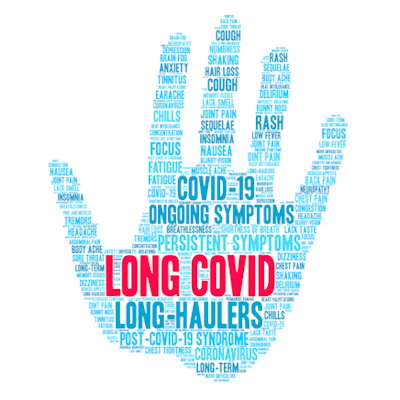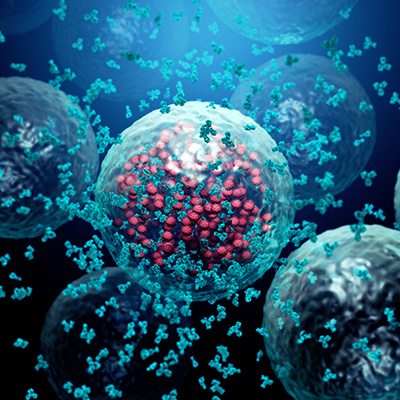May 31, 2023 -- Researchers have found that people with inflammatory rheumatic diseases show no increased susceptibility to long COVID. This and other studies are being presented at the European Alliance of Associations for Rheumatology (EULAR) 2023 Congress in Milan from May 31 to June 3.
Studies on long-COVID patients with inflammatory rheumatic diseases (iRD) are scarce and largely inconclusive. Nor is it known whether correctly classifying patients with iRD as long-COVID cases is complicated by persistent symptoms that could be attributed to either disease.
The researchers sought to compare the risk of developing long COVID after Omicron infection in iRD patients enrolled in a prospective cohort study, with age- and sex-matched healthy controls.
As per World Health Organization (WHO) guidelines, long-COVID participants reported persistent symptoms lasting at least eight weeks, within three months of confirmed SARS-CoV-2 infection onset, unexplainable by alternative diagnoses.
Of the 1,974 iRD participating patients and 733 controls, 24% and 30% respectively had an Omicron infection. Questionnaires revealed that more iRD patients than controls fulfilled long COVID criteria -- 21% versus 13%, respectively.
Post-hoc modeling showed that higher body mass index and severity in the acute infection phase were significantly associated with a higher risk of developing long COVID. Fatigue and loss of fitness were the most commonly reported long COVID symptoms in both groups; long-COVID recovery time was similar.
More iRD patients than controls with no history of COVID-19 reported symptoms also observed in long COVID, perhaps due to clinical manifestations of underlying rheumatic diseases.
Other researchers presented data from a prospective cohort study -- called "COVID 19: A pandemic with a long tail" -- that included immune-mediated inflammatory disease (IMID) patients on immunosuppressive therapies. They examined whether post-vaccination anti-spike antibody levels could predict breakthrough infection and COVID-19 outcomes.
A large cohort of 1,051 patients provided post-vaccination samples and responded to follow-up questionnaires after three vaccines. Immunosuppressive medication included tumor necrosis factor inhibitors, methotrexate, interleukin inhibitors, janus kinase inhibitors, and vedolizumab. Hospital records, the Norwegian Patient Registry, and the Norwegian Death Cause Registry provided additional information.
Results showed that while half the patients reported COVID-19, few had life-threatening illness. Patients with the highest post-vaccination anti-spike levels had a lower risk of COVID-19 infection, supporting the benefits of repeated vaccination in IMID patients on immunosuppressive therapies. Comorbidities or ulcerative colitis increased the risk of breakthrough infections.
Researchers concluded that low antibody levels do not greatly increase severe COVID-19 risks, and emphasized positive prognoses for vaccinated IMID patients with Omicron infections.
Other researchers have reported on the safety of COVID-19 vaccines during pregnancy and breastfeeding in women with autoimmune diseases. This international study sought to answer questions about COVID-19 vaccination uptake in people with autoimmune diseases.
Overall, 40 pregnant and 52 breastfeeding patients with autoimmune diseases were identified, with vaccination rates of 100% and 96.2%, respectively. Adverse events were reported more frequently by pregnant patients, but at rates similar to pregnant healthy controls. No differences were observed between breastfeeding patients and healthy controls.
Post-vaccination disease flares were reported by 17.5% of pregnant and 20% of breastfeeding patients, and by 18% of age- and disease-matched control patients. Disease flares were managed with glucocorticoids; one in five women required initiation or changes in their immunosuppressive treatment.
Researchers hope that these indications of COVID-19 vaccination safety during the antenatal period in women with autoimmune disease will strengthen physician-patient communication and overcome vaccine hesitancy.
"The benefits for the mother and fetus by passive immunization are likely to overweigh the potential risks of adverse events and disease flares," Dr. Laura Andreoli, University of Brescia rheumatology professor, said in a statement.
Copyright © 2023 scienceboard.net













